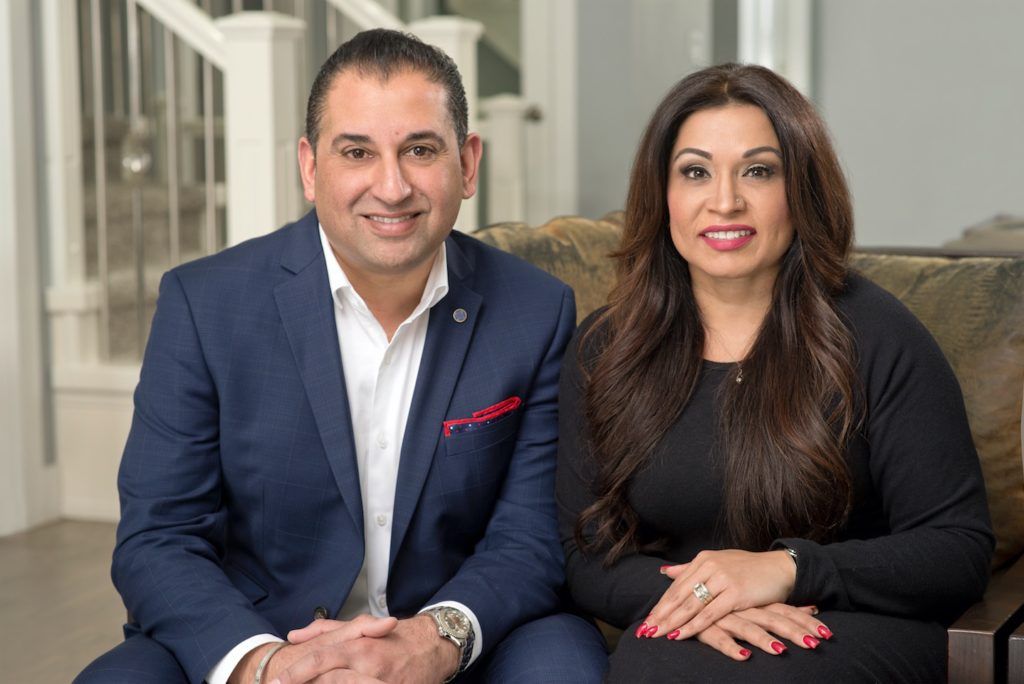3 Reasons to Use an Independent Mortgage Professional!
Team Gill • August 25, 2020

If you need to borrow money to finance any property, working with an independent mortgage professional will save you money, time, and provide you with better options than your bank.
And if that is the only sentence you read in this entire article, you already know all you need to. However, if you’d like to dig a little deeper, here are three reasons why working with an independent mortgage professional is in your best interest.
The best mortgage is the one that costs you the least over the life of your mortgage. An independent mortgage professional will guide you.
All mortgages are NOT created equal. Unfortunately, slick marketing and consumerism have led us to believe that the lowest “sticker price” equals the best value. As it relates to mortgages, we’re led to believe that the lowest rate equals the best mortgage. However, this is entirely wrong.
When considering which mortgage is the best for you, you’ll want to find one that will cost you the least over the total length of the mortgage. There are so many more factors to consider than just rates, such as the initial term, fixed or variable, amortization, or any potential penalty to break the mortgage (should you need to sell the property before the end of your term).
An independent mortgage professional will outline all your options, and help you find the mortgage that best suits your needs. Sometimes taking a mortgage with a bit of a higher rate makes sense if it gives you flexibility down the line to avoid huge payout penalties.
Save time and protect yourself by submitting one mortgage application, and let an independent mortgage professional find the best product for you.
Let’s face it; getting a mortgage can be challenging enough on its own. Everyone’s financial situation is a little different and making sense of lender guidelines is a full-time job in itself. When you work with an independent mortgage professional, you submit a single mortgage application, all your documentation is collected upfront, and one credit report is taken.
Your mortgage professional will then compare your mortgage application and financial situation to various lender guidelines and provide you with the best mortgage options (from their expert opinion). By allowing your mortgage professional to do all the research with multiple lenders, you save time while being provided with more options than you’d have available to you if you did all the work on your own, a win-win situation.
An independent mortgage professional works for you, on your behalf, while a bank specialist works for the bank and has the banks best interest in mind.
It’s no secret that Canadian banks make A LOT of money. It seems every quarter they turn billions of dollars in profit (despite the economic environment). They do this at the expense of their customers by charging as much interest as they can while locking clients into mortgages with fine print that costs them a lot of money down the line if they need to break their mortgage.
Bank employee’s work for the bank, they are paid by the bank to make money for the bank. In contrast, independent mortgage professionals are provincially licenced to work for their clients and are paid a standardized placement or finder’s fee for matching borrowers with lenders.
When you work with a single bank, you only have access to the products of that bank. When you work with an independent mortgage professional, you have access to all of the lenders that mortgage professional works with and all of their products.
If your goal is to find the best mortgage, one that costs you the least over time, you need product options. And independent mortgage professional provides you with this.
If you’d like to discuss mortgage financing, as an independent mortgage professional, we would love to work with you. Contact us anytime.
Share
Sign up to to our newsletter to hear weekly updates on market news, timely buyer/seller tips, and up to date rates
Mick & Sheila Gill
CANADIAN MORTGAGE EXPERTS

RECENT POSTS

What Is a Second Mortgage, Really? (It’s Not What Most People Think) If you’ve heard the term “second mortgage” and assumed it refers to the next mortgage you take out after your first one ends, you’re not alone. It’s a common misconception—but the reality is a bit different. A second mortgage isn’t about the order of mortgages over time. It’s actually about the number of loans secured against a single property —at the same time. So, What Exactly Is a Second Mortgage? When you first buy a home, your mortgage is registered on the property in first position . This simply means your lender has the primary legal claim to your property if you ever sell it or default. A second mortgage is another loan that’s added on top of your existing mortgage. It’s registered in second position , meaning the lender only gets paid out after the first mortgage is settled. If you sell your home, any proceeds go toward paying off the first mortgage first, then the second one, and any remaining equity is yours. It’s important to note: You still keep your original mortgage and keep making payments on it —the second mortgage is an entirely separate agreement layered on top. Why Would Anyone Take Out a Second Mortgage? There are a few good reasons homeowners choose this route: You want to tap into your home equity without refinancing your existing mortgage. Your current mortgage has great terms (like a low interest rate), and breaking it would trigger hefty penalties. You need access to funds quickly , and a second mortgage is faster and more flexible than refinancing. One common use? Debt consolidation . If you’re juggling high-interest credit card or personal loan debt, a second mortgage can help reduce your overall interest costs and improve monthly cash flow. Is a Second Mortgage Right for You? A second mortgage can be a smart solution in the right situation—but it’s not always the best move. It depends on your current mortgage terms, your equity, and your financial goals. If you’re curious about how a second mortgage could work for your situation—or if you’re considering your options to improve cash flow or access equity—let’s talk. I’d be happy to walk you through it and help you explore the right path forward. Reach out anytime—we’ll figure it out together.

Going Through a Separation? Here’s What You Need to Know About Your Mortgage Separation or divorce can be one of life’s most stressful transitions—and when real estate is involved, the financial side of things can get complicated fast. If you and your partner own a home together, figuring out what happens next with your mortgage is a critical step in moving forward. Here’s what you need to know: You’re Still Responsible for Mortgage Payments Even if your relationship changes, your obligation to your mortgage lender doesn’t. If your name is on the mortgage, you’re fully responsible for making sure payments continue. Missed payments can lead to penalties, damage your credit, or even put your home at risk of foreclosure. If you relied on your partner to handle payments during the relationship, now is the time to take a proactive role. Contact your lender directly to confirm everything is on track. Breaking or Changing Your Mortgage Comes With Costs Dividing your finances might mean refinancing, removing someone from the title, or selling the home. All of these options come with potential legal fees, appraisal costs, and mortgage penalties—especially if you’re mid-term with a fixed-rate mortgage. Before making any decisions, speak with your lender to get a clear picture of the potential costs. This info can be helpful when finalizing your separation agreement. Legal Status Affects Financing If you're applying for a new mortgage after a separation, lenders will want to see official documentation—like a signed separation agreement or divorce decree. These documents help the lender assess any ongoing financial obligations like child or spousal support, which may impact your ability to qualify. No paperwork yet? Expect delays and added scrutiny in the mortgage process until everything is finalized. Qualifying on One Income Can Be Tougher Many couples qualify for mortgages based on combined income. After a separation, your borrowing power may decrease if you're now applying solo. This can affect your ability to buy a new home or stay in the one you currently own. A mortgage professional can help you reassess your financial picture and identify options that make sense for your situation—whether that means buying on your own, co-signing with a family member, or exploring government programs. Buying Out Your Partner? You May Have Extra Flexibility In cases where one person wants to stay in the home, lenders may offer special flexibility. Unlike traditional refinancing, which typically caps borrowing at 80% of the home’s value, a “spousal buyout” may allow you to access up to 95%—making it easier to compensate your former partner and retain the home. This option is especially useful for families looking to minimize disruption for children or maintain community ties. You Don’t Have to Figure It Out Alone Separation is never simple—but with the right support, you can move forward with clarity and confidence. Whether you’re keeping the home, selling, or starting fresh, working with a mortgage professional can help you understand your options and create a strategy that aligns with your new goals. Let’s talk through your situation and explore the best path forward. I’m here to help.

